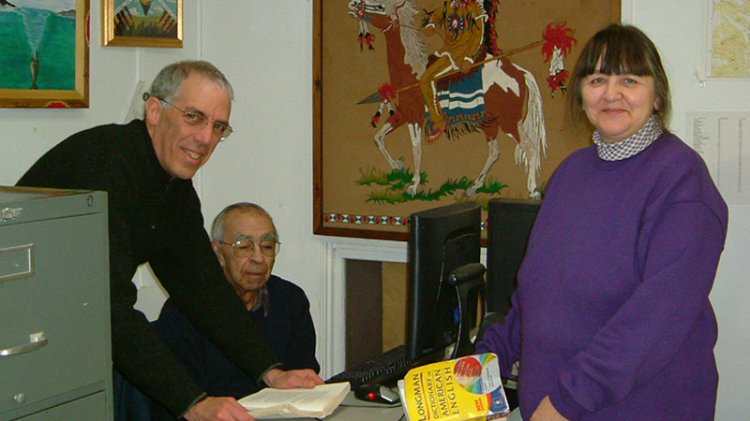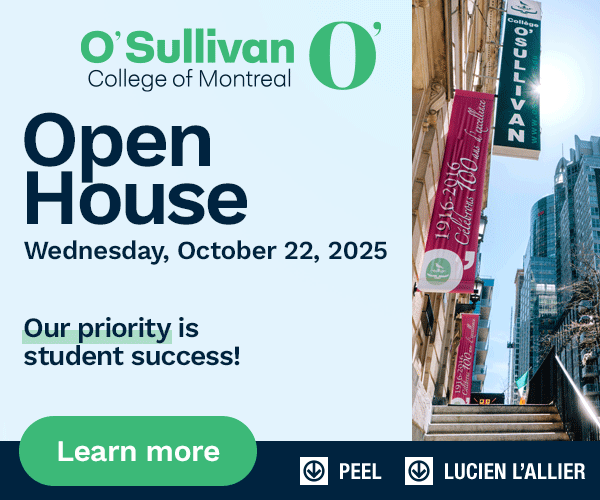When Robert Leavitt, professor emeritus and retired faculty member at the University of New Brunswick (UNB), first began working with the Peskotomuhkati community in Maine in the early 1970s, he was a young educator helping develop a bilingual curriculum.
Today, more than 50 years after the project began, the collaborative efforts of Leavitt, elder and Indigenous language keeper David A. Francis, and Indigenous researcher Margaret Apt have culminated in the Peskotomuhkati-Wolastoqey Language Portal and a comprehensive dictionary that continues to grow and evolve.
The three Francis posthumously were recently awarded the Governor General's Meritorious Service Medal for their contributions to Indigenous language revitalization.
"It's quite an honour," said Leavitt.
The dictionary's roots stretch back to the 1970s, when linguistics student Philip LeSourd began collecting Peskotomuhkati words on index cards. Leavitt inherited the project and began working closely with Francis, an Elder from Sipayik (Pleasant Point, Maine).
"David had become fascinated with the idea of writing the language," Leavitt recalled. "Most speakers of oral languages don't think about grammar or etymology, but he was able to step back and analyze it.
"He was a marvel he'd come up with words and example sentences, and he loved to play with language."
Francis's contributions were both scholarly and deeply cultural. He drew on his childhood experiences in the 1920s, time spent with his grandparents, and even his service in the Second World War, to enrich the dictionary.
"He knew archaic words that had fallen out of use," said Leavitt. "He even compiled the Peskotomuhkati baseball terminology that players used to strategize without outsiders understanding."
Margaret Apt, known as Dolly, joined the project in the 1990s through a National Science Foundation (NSF) grant. Her role was pivotal in grounding the dictionary in lived experience.
"Dolly did excellent research in the community," said Leavitt. "She interviewed people, recorded conversations, and gathered not just words but example sentences that embodied the culture."
Together, the team published the first edition of the dictionary, Peskotomuhkati Wolastoqewi Latuwewakon, in 2008 a 1,200-page volume with over 18,000 entries.
A second edition, expanded to more than 1,600 pages, is set to be released this winter in two volumes by the University of Maine Press and Goose Lane Editions.
The dictionary is also available online, developed in collaboration with UNB Libraries.
"The dictionary portal is completely accessible to everyone," said Leavitt. "It's the definitive version, and we continue to add entries, examples and audio recordings."

(from left to right) Robert Leavitt, David A. Francis and Margaret Apt working on the dictionary.
The portal's impact is far-reaching.
"We once did a launch at Woodstock First Nation," said Leavitt.
"A woman came up to me and said, in Wolastoqey, I sleep with this book.' She kept it on her bedside table and looked up words whenever something occurred to her."
The dictionary is more than a linguistic tool it's a vessel of cultural memory.
Leavitt, Francis and Apt worked with elders to recover names of fish species, basket-making techniques and traditional stories.
"We'd show Elders pictures and ask, Do you remember what this is called?'" said Leavitt. "People were so generous with their knowledge."
The language itself invites creativity. With its verb-heavy structure, speakers can modify words to express nuanced actions like squashing something with a foot versus a hand.
"David loved that," said Leavitt. "I'd ask, How would you say it if you squashed it with a hammer?' Each variation is a different word."
This inventive spirit is embedded in the language and essential to its revitalization.
"People are constantly inventing words," said Leavitt. "Especially now, when translating abstract concepts like security' or investment.' Some people try to do it word-by-word, but others find ways to express ideas more holistically."
Though formal funding for the project has ended, the work continues. Leavitt still collaborates with Apt and with Roseanne Clark, a Wolastoqey educator, on translations and teaching materials.
UNB Libraries remain committed to maintaining the portal, treating it as a flagship project.
"They've really taken it on," said Leavitt. "It's gratifying to know it's being supported and used by younger generations."
As the second edition nears publication, the legacy of this work is clear: It's a story of collaboration and the power of language to connect communities across generations and borders.
"I think what hooked David was when he saw a story written down that his grandmother had told him," Leavitt reflected. "That moment seeing oral tradition preserved in writing was transformative. And that's what this dictionary is, it's a living archive of a language, a culture and a people."













